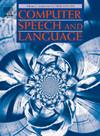Gnowsis: Multimodal multitask learning for oral proficiency assessments
IF 3.4
3区 计算机科学
Q2 COMPUTER SCIENCE, ARTIFICIAL INTELLIGENCE
引用次数: 0
Abstract
Although oral proficiency assessments are crucial to understand second language (L2) learners’ progress, they are resource-intensive. Herein we propose a multimodal multitask learning model to assess L2 proficiency levels from multiple aspects on the basis of multimodal dialogue data. To construct the model, we first created a dataset of speech samples collected through oral proficiency interviews between Japanese learners of English and a conversational virtual agent. Expert human raters subsequently categorized the samples into the six levels based on the rating scales defined in the Common European Framework of Reference for Languages with respect to proficiency in one holistic and five analytic assessment criteria (vocabulary richness, grammatical accuracy, fluency, goodness of pronunciation, and coherence). The model was trained using this dataset via the multitask learning approach to simultaneously predict the proficiency levels of these language competences from various linguistic features. These features were extracted via multiple encoder modules, which were composed of feature extractors pretrained through various natural language processing tasks such as grammatical error correction, coreference resolution, discourse marker prediction, and pronunciation scoring. In experiments comparing the proposed model to baseline models with a feature extractor pretrained with single modality (textual or acoustic) features, the proposed model outperformed the baseline models. In particular, the proposed model was robust even with limited training data or short dialogues with a smaller number of topics because it considered rich features.
多模态多任务学习用于口语水平评估
虽然口头能力评估对于了解第二语言学习者的进步至关重要,但它们是资源密集型的。在此,我们提出了一个多模态多任务学习模型,以多模态对话数据为基础,从多个方面评估二语熟练程度。为了构建模型,我们首先创建了一个语音样本数据集,该数据集是通过日本英语学习者与会话虚拟代理之间的口语熟练程度访谈收集的。专家评分员随后根据《欧洲共同语言参考框架》中定义的评分量表将样本分为六个级别,涉及一个整体和五个分析性评估标准(词汇丰富度、语法准确性、流利度、发音良好和连贯性)的熟练程度。该模型使用该数据集通过多任务学习方法进行训练,同时从各种语言特征中预测这些语言能力的熟练程度。这些特征通过多个编码器模块提取,这些编码器模块由经过各种自然语言处理任务(如语法错误纠正、共指解析、话语标记预测和发音评分)预训练的特征提取器组成。在实验中,将所提出的模型与使用单模态(文本或声学)特征预训练的特征提取器的基线模型进行比较,所提出的模型优于基线模型。特别是,由于考虑了丰富的特征,即使在有限的训练数据或具有较少主题的简短对话中,所提出的模型也具有鲁棒性。
本文章由计算机程序翻译,如有差异,请以英文原文为准。
求助全文
约1分钟内获得全文
求助全文
来源期刊

Computer Speech and Language
工程技术-计算机:人工智能
CiteScore
11.30
自引率
4.70%
发文量
80
审稿时长
22.9 weeks
期刊介绍:
Computer Speech & Language publishes reports of original research related to the recognition, understanding, production, coding and mining of speech and language.
The speech and language sciences have a long history, but it is only relatively recently that large-scale implementation of and experimentation with complex models of speech and language processing has become feasible. Such research is often carried out somewhat separately by practitioners of artificial intelligence, computer science, electronic engineering, information retrieval, linguistics, phonetics, or psychology.
 求助内容:
求助内容: 应助结果提醒方式:
应助结果提醒方式:


